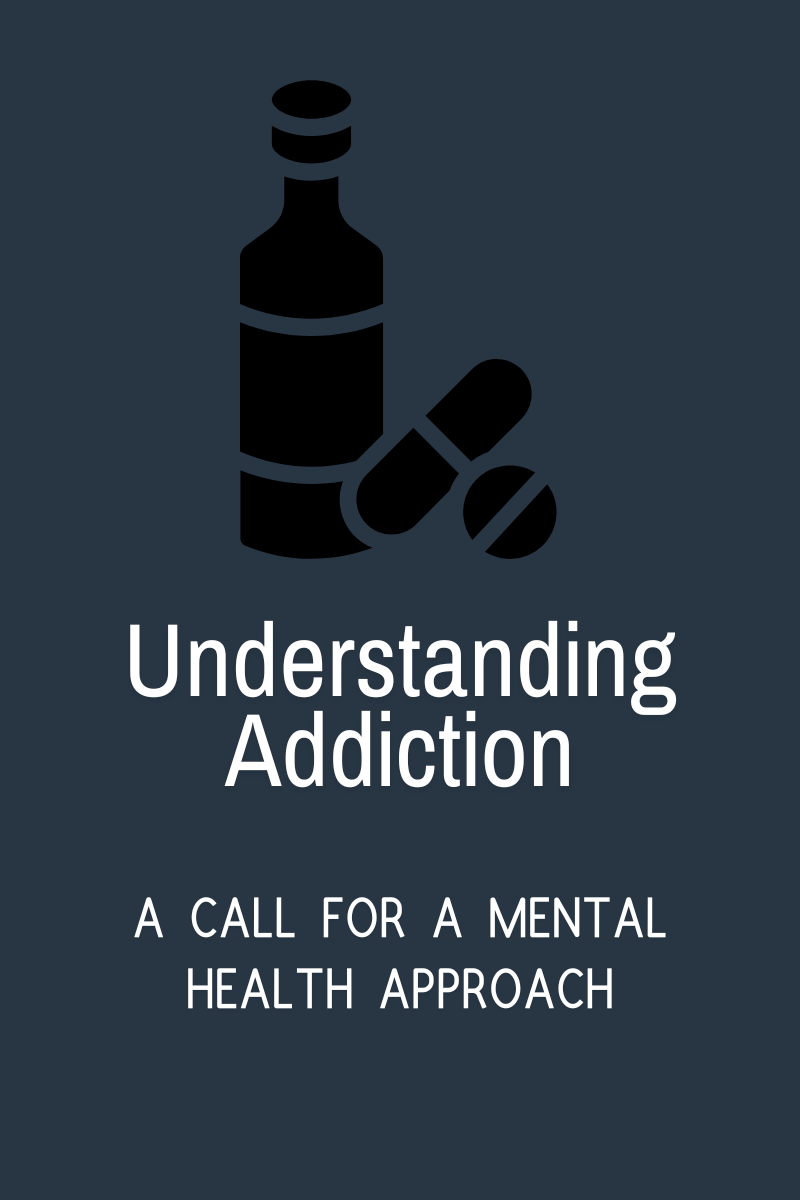In recent years, our society has been entrenched in a war on drugs and alcohol, focusing heavily on punitive measures and criminalization. However, this approach often overlooks a critical aspect of addiction: its roots in mental health.
Having recently lost three dear friends to the grip of drugs and alcohol, I’ve come to deeply understand the importance of addressing addiction as a mental health issue rather than merely a criminal one. These losses have underscored for me that addiction is not just a failure of willpower but a complex interplay of psychological, emotional, and social factors.
Rather than treating addiction as a battle to be won with strict penalties and societal condemnation, we should advocate for a more compassionate and effective approach. By prioritizing mental health support and understanding, we can provide individuals struggling with addiction the tools and care they need to overcome their challenges and rebuild their lives.
This shift in perspective—viewing addiction through the lens of mental health rather than as a moral failing or criminal act—can lead to more effective treatment, reduce stigma, and ultimately save lives. It’s time we change the narrative and focus our efforts on healing and understanding.
The Traditional “War” Approach
For decades, the “War on Drugs” has shaped public perception and policy regarding addiction. We’ve been taught to see addiction as a personal failing, a moral weakness, or even a crime. This approach criminalizes people for their struggles with substances, putting the focus on punishment rather than healing.
While there’s no doubt that drugs and alcohol can destroy lives, focusing solely on eradicating substances doesn’t address why people turn to them in the first place. Instead, it often reinforces a cycle of shame, guilt, and relapse. We need to step back and consider what’s driving people to alcohol and drugs and stop treating substances as the enemy. The real issue lies beneath the surface.
Addiction Is Not a Moral Failure—It’s a Symptom
Alcoholism and drug addiction are often coping mechanisms for deeper mental health issues like depression, anxiety, trauma, or unresolved emotional pain. People don’t choose to become addicted; they turn to substances as a way to manage unbearable feelings or escape their circumstances. When we only treat addiction as a battle against drugs and alcohol, we miss the opportunity to address the root causes.
Understanding addiction as a mental health condition shifts the conversation away from blame and punishment toward compassion and treatment. By recognizing the psychological and emotional struggles behind addiction, we can begin to offer support that promotes healing rather than exacerbating the problem.
Mental Health Is the Key to Recovery
If we truly want to help people overcome addiction, we need to start by providing comprehensive mental health care. Substance use disorders are often tied to unresolved emotional wounds, trauma, or untreated mental health conditions. Without addressing these underlying issues, recovery becomes incredibly difficult, if not impossible.
Many people with addictions also suffer from co-occurring mental health disorders, such as anxiety, depression, PTSD, or bipolar disorder. If these mental health conditions are left untreated, they will continue to drive the desire to escape through drugs or alcohol. Proper mental health care can empower individuals to heal and find healthier ways to cope with their pain.
Breaking the Cycle of Shame
One of the most damaging aspects of the traditional approach to addiction is the stigma and shame it creates. People struggling with addiction are often seen as weak or immoral, which prevents them from seeking help. This isolation only deepens their addiction, making it harder to break free.
Instead of perpetuating shame, we need to approach addiction with empathy and understanding. Recognizing addiction as part of a larger mental health issue allows us to break down the barriers of stigma and offer real support. People who feel understood and accepted are far more likely to reach out for help and start their journey toward recovery.
What a Better Approach Looks Like
A more effective and humane approach to addiction involves:
- Mental Health Support: Providing access to mental health services, including therapy, medication, and support groups, helps individuals address the root causes of their addiction.
- Non-Judgmental Care: Creating a culture where people feel safe to seek help without fear of judgment or punishment is crucial. Addiction is a health issue, not a moral failure.
- Holistic Treatment: Programs that combine mental health care with addiction treatment offer the best chances of recovery. This includes addressing trauma, emotional pain, and other psychological factors that contribute to substance use.
- Community and Connection: Isolation fuels addiction, while connection fosters recovery. Supportive communities that understand the complexity of addiction and mental health can be life-changing for those seeking help.
